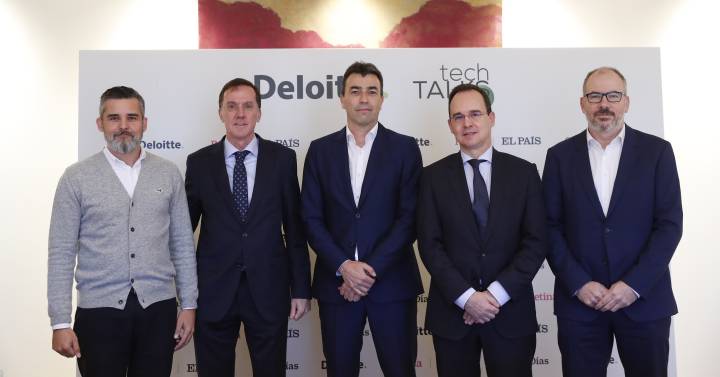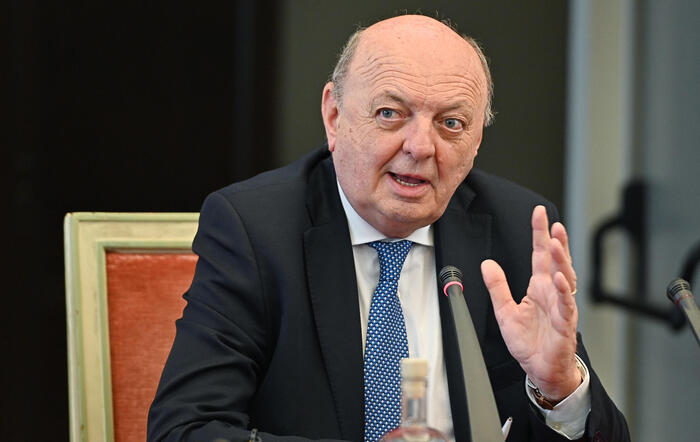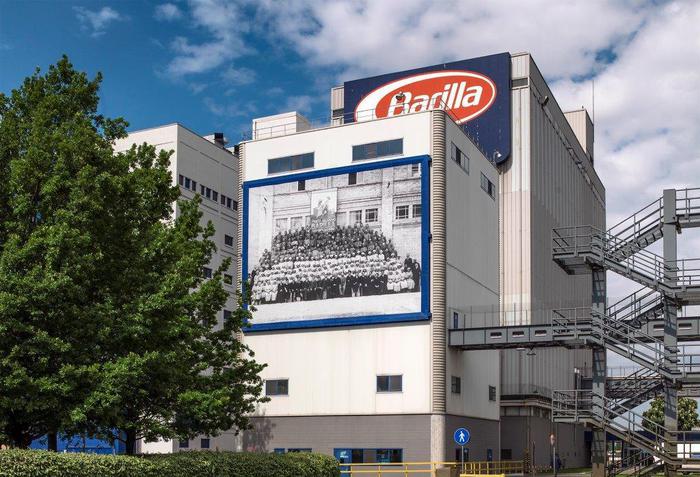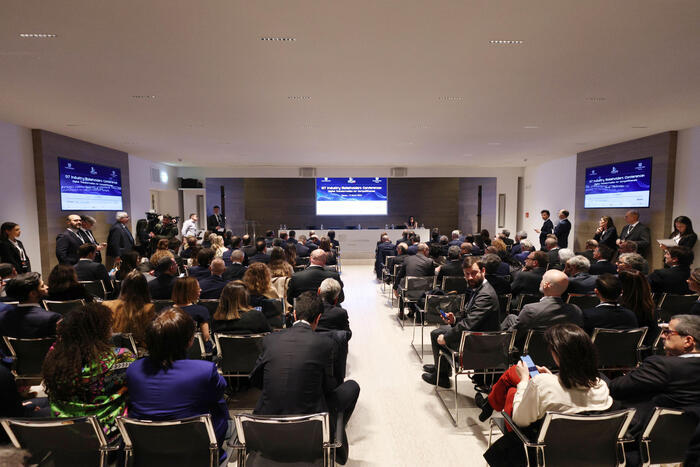Digitization has transformed the way of doing things in many economic sectors in recent years. In the case of energy companies, these changes have been deeper. Used to being at the forefront of knowledge, they have been among the first to apply technology to all their processes to lead a revolution that society demands.
As a result of this fundamental role of technology, and now of its evolution to digital, companies such as Iberdrola, Naturgy or Repsol have opened a path through which they move forward with greater strength to face, among other challenges, the energy transition and decarbonization .
This constant forward movement has also prompted the modification in the area of operations and commercial. In the first, making the processes more efficient, better and cheaper. And in the second, focusing on customers with a standard quality service with new and more competitive products and services.
But as the world does not stop, new challenges due to digitalization are here and need to be resolved. The most important are three and points out Felipe Requejo, global leading partner of power & utilities and the energy sector in Spain of Deloitte: "The competition brought by these disruptive technologies that add new players in the value chain; cybersecurity, consequence that everything is connected and the security breach in many aspects, and the attraction and conservation of talent to continue driving the transformation of these companies. "
Ready for the 5G jump
Revolution. Felipe Requejo says that the arrival of 5G will mean an "additional leap", a revolution with which energy companies will have "more connectivity and information", and what this means to work with them. However, he also believes that its use and application is considered "as a challenge" that companies are already facing to get the best possible performance. That challenge will have to take into account two difficulties, according to Deloitte's partner: "The deployment of the network, which will not be in the short term. In addition, this will not be uniform throughout the geographical area." This fact "is going to condition us," he says, and to explain it, he sets the example that before using this technology, "how many of my clients already have it and in what areas?" The solution is, from his point of view, to prepare and analyze "how I am going to accompany the deployment of this technology with its use in my cases, both in terms of customers, assets and employees," he concludes.
These are some of the most prominent topics that were addressed in the tech talk that Deloitte organized in collaboration with CincoDías on this matter. The newspaper's director, Miguel Jiménez, moderated a debate in which, in addition to Felipe Requejo, Valero Marín, digital and information technology director of Repsol participated; Fernando Lucero, director of information technologies at Iberdrola, and Rafael Blesa, director of information technologies at Naturgy.
Internal training
On talent, Valero Marín is convinced that the technological transformation "not only changes the company, but also the employee", which has to vary the way he works. Achieving this goal overnight "is a utopia" that can only be achieved through training. "Internal programs are fundamental in this area. If you lose the challenge of people, technology does not advance," he reflects.
In order to attract that talent, Fernando Lucero is sure that "intensive training in all areas" must be done. The way to achieve this is to build a "more collaborative environment, with fewer organizational barriers and put these people in a more dynamic way". "We have to be more attractive, we are witnessing a change of roles and roles" and we must change to remain leaders, "he reasons." Yes, we should evaluate well what capabilities we have in the workforce and what is better to look outside of it " , says Rafael Blesa, more in favor of finding the balance between training and hiring.
Where there is a total coincidence between the three is the importance of cybersecurity today. Lucero defines it as "the elephant in the room", and is convinced that it will require a lot of investment for its growth in the coming years because "the bad guys are getting worse and worse."
Marín starts from the fact that "it is a major challenge", and adds that in Repsol they have the concept of "zero trust" and that it is "basic" to make networks secure. Blesa completes the circle highlighting that "security must be present from the beginning, from the design" and warns that it is "a business that has just surpassed drug trafficking."
And as for the third challenge, that of the competition that has brought digitalization to the energy sector with the appearance of new players by breaking up the value chain with all these disruptions, the three managers advance different proposals from their respective companies in environments that They define all as "very dynamic."
Thus, Iberdrola believes that it is "a super opportunity that is changing us all for good, especially in the area of marketing." Fernando Lucero calls attention to two elements with which they are working: "Use the added value that we have and which our competitors lack", on the one hand. And on the other hand, and focusing on the relationships established with third parties, "through the specific agreements we have with startups and other companies to boost the search for talent and innovation that we do not have inside the house" and continue competing without falling behind.
New business model
In Naturgy they also want to take advantage of having many customers who are now going to try to sell everything, "not only energy, but other services, mobility, etc". Rafael Blesa thinks that "the sectorial competition is broken and now you compete with all kinds of companies".
From Repsol they are in favor of evolving towards a new business model characterized by "an open ecosystem in which we have a group of partners that help you adopt that technology" that you lack. Valero Marín observes that it is the way to "be updated and have that radar" that tells you "this is what is happening and this is what I have to change".
This set of actions that are already underway and others that will arise in this vertiginous environment in which we move is what, according to Felipe Requejo, will lead the energy sector to "successfully conclude this transition process in which these are immersed companies. "
Innovation, a powerful tool and opportunity at the service of business
Energy companies have been incorporating technology in their culture and strategic plans for years as a powerful tool at the service of business. But innovations do not stop happening and do so at a dizzying pace. Storage, new renewable energies such as hydrogen, big data, robotization, drones, internet of things (IoT), artificial intelligence (AI), etc., are just a few. But not all have the same degree of development or penetration.
All participants in the meeting organized by CincoDías in collaboration with Deloitte agree that storage technologies will be key in decarbonization. There is also agreement that at the end of this process an exclusive use of renewable energies will be made and that in order to reach it there will be several technologies. Only one will not be possible.
Then there are slight differences in the energy that should lead this metamorphosis. Deloitte is committed to hydrogen, although he acknowledges that, "for the moment, it is very expensive and requires development"; Naturgy points to the gas; Iberdrola believes that it will be mixed, although it warns that "the consumer also wants to produce his own energy, and Repsol also assures that it will be an" energy mix ".
In this scenario, Felipe Requejo also points out innovations that are already "mature", such as the cloud, big data, robotization and automation, and others, such as artificial intelligence, where you can still take "an important leap to take advantage of the value of the data, something we get when we apply AI techniques. "
In Repsol they have already taken that leap and take advantage of the AI to "change things that you didn't even think about before". Valero Marín gives several examples: "Everything that has to do with how we see the health of our assets through real-time information; giving the employee mobility tools, what is connected and can make better decisions; in the production of certain materials, going from hours to minutes, and in the commercial world with payment processors and customized products ".
Digital culture
Naturgy's IT director highlights the commitment they are making with these user-centered innovations, "to meet the challenge of adapting to the tastes of each client." The idea is to take advantage of all the information they now have to "optimize the attention and services we have".
And also the employees, through the creation a few months ago of a "data community", made up of about 300 volunteer workers from the company. The objective is "to make the transformation through the creation of a digital culture". Training is done here, experiences are exchanged or collaboration spaces are created.
Iberdrola is perhaps the company that uses the most innovations on a daily basis. Data and analytics, for example, are mentioned by its head of technological systems in the deployment of almost 11 million smart meters to measure the consumption and behavior of its customers. This information has allowed them "to be more efficient than before in the behavior of networks" and at the same time "to go to products that are increasingly personalized and tailored to a more demanding consumer".
In the field of internet of things and sensorization, Lucero points out the use of sensors in industrial plants that allows them to "operate and predict in real time what is happening", achieving a high degree of efficiency.
In Iberdrola, the blockchain is also used to ensure that the "origin of the energy sold by a customer is renewable and in real time," or drones to take information with cameras and "predict whether there is going to be a breakdown or a problem."















